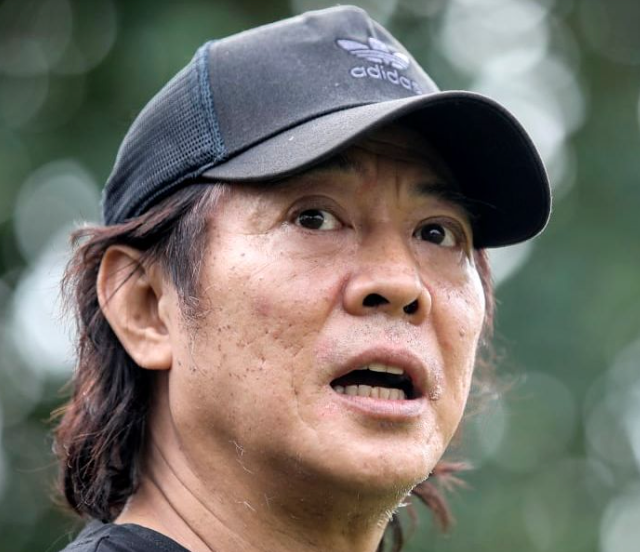Jet Li: The Martial Arts Legend Who Redefined Action Cinema
- The Gooch

- Feb 9, 2025
- 4 min read
Jet Li: The Journey of a Martial Arts Legend
Early Life and Martial Arts Beginnings

Jet Li, born Li Lianjie on April 26, 1963, in Beijing, China, was the youngest of five siblings. His father passed away when he was just two years old, leaving his mother to raise the family. As a child, Jet was quiet and disciplined, traits that would serve him well in his martial arts career.

At the age of eight, he was discovered during a summer school program that introduced children to Wushu (Chinese martial arts). His exceptional talent caught the attention of coaches, and he was recruited into the Beijing Wushu Team, a prestigious national program.

Under the rigorous training of legendary coach Wu Bin, Jet Li honed his martial arts skills and quickly rose through the ranks. Between the ages of nine and seventeen, he won five consecutive gold medals at the Chinese National Wushu Championships, defeating competitors much older than him.


His abilities were so impressive that he was selected to perform for U.S. President Richard Nixon in 1974. When Nixon jokingly asked if Jet Li would like to be his bodyguard when he grew up, Li responded, “I don’t want to protect any one person. When I grow up, I want to defend my one billion Chinese countrymen!”


Transition to Martial Arts Cinema
At 18, Jet Li retired from competitive Wushu due to injuries and shifted his focus to film. His big break came in 1982 with Shaolin Temple, a film that introduced authentic martial arts to Chinese cinema. The film became a massive hit, inspiring a resurgence of Shaolin martial arts schools across China.


Following this success, Jet Li starred in several sequels, solidifying his status as a martial arts icon:
Shaolin Temple 2: Kids from Shaolin (1984)
Shaolin Temple 3: Martial Arts of Shaolin (1986)

By the late 1980s, Jet Li had become one of the most celebrated martial arts stars in China, drawing comparisons to Bruce Lee. However, his greatest successes were yet to come.

The Once Upon a Time in China Series (1991-1997)
Jet Li’s most iconic role came in 1991 when he was cast as Wong Fei-hung in Once Upon a Time in China. This historical martial arts epic redefined the genre, blending action with deep philosophical and nationalist themes.

Jet Li’s portrayal of the legendary folk hero showcased his grace, power, and charisma.
The series included:
Once Upon a Time in China (1991)
Once Upon a Time in China II (1992) (where he fought Donnie Yen in one of the best martial arts duels in cinema)

Once Upon a Time in China III (1993)
Once Upon a Time in China IV & V (Jet Li did not return for these, but he reprised his role in 1997’s Once Upon a Time in China and America).

During this time, he also starred in:
Fist of Legend (1994) – A remake of Bruce Lee’s Fist of Fury, considered by many to be one of the greatest martial arts films ever made.
Tai Chi Master (1993) – Showcased his ability to blend philosophy with action.

Black Mask (1996) – A sci-fi action film that became a cult classic.


By the mid-1990s, Jet Li was an international martial arts superstar, but he had yet to break into Hollywood. That would change soon.

Breaking into Hollywood (1998-2010)
Jet Li made his Hollywood debut in Lethal Weapon 4 (1998), playing the silent but deadly villain Wah Sing Ku. This marked the first time Western audiences saw his martial arts mastery, and he stole every scene he was in.


This performance led to his first leading role in a Hollywood film:
Romeo Must Die (2000) – A martial arts/hip-hop fusion film co-starring Aaliyah. The movie was a box office success and helped introduce Jet Li to American audiences.

He followed it up with:
Kiss of the Dragon (2001) – A more grounded action film, considered one of his best Hollywood movies.

The One (2001) – A sci-fi action film where Jet Li played multiple versions of himself in a battle across parallel universes.

Cradle 2 the Grave (2003) – Co-starring rapper DMX, blending martial arts with urban action.
Unleashed (Danny the Dog) (2005) – A dramatic and emotional action film where Jet Li played a man raised as a human weapon. This was one of his best acting performances.
Fearless (2006) – A historical epic based on the real-life martial artist Huo Yuanjia. Jet Li considered this his “last true martial arts film,” as he wanted to retire from the genre while at his peak.
The Forbidden Kingdom (2008) – The Dream Match with Jackie Chan

For years, fans had dreamed of a movie where Jet Li and Jackie Chan would face off. That finally happened in The Forbidden Kingdom (2008), where they played two legendary figures from Chinese mythology. Their fight scene together is considered one of the greatest in martial arts cinema.
The Expendables and Retirement from Action Films (2010-Present)
In the 2010s, Jet Li joined Sylvester Stallone’s The Expendables franchise, fighting alongside Arnold Schwarzenegger, Bruce Willis, Jason Statham, and Dolph Lundgren. He appeared in The Expendables (2010), The Expendables 2 (2012), and The Expendables 3 (2014), though his screen time was limited due to health issues.
Around this time, Jet Li stepped away from action films due to his struggle with hyperthyroidism, which caused weight loss, fatigue, and heart issues.
His later roles include:
Mulan (2020) – Played the Emperor of China in Disney’s live-action remake.
Jet Li’s Legacy
Jet Li’s impact on martial arts cinema is immeasurable. He bridged the gap between traditional Chinese films and Hollywood, paving the way for future generations of martial artists like Donnie Yen and Tony Jaa. His films emphasized not just action, but also philosophy, discipline, and honor.
Beyond cinema, Jet Li is a dedicated philanthropist. In 2007, he founded The One Foundation, focusing on disaster relief, poverty reduction, and education. He has also promoted Tai Chi, meditation, and Chinese medicine, advocating for holistic health.
Will There Ever Be Another Jet Li?
Jet Li is one of a kind. While martial arts stars like Donnie Yen, Iko Uwais, and Tony Jaa have continued the tradition, none have matched his combination of authenticity, skill, and star power. His ability to mix grace, power, and storytelling in his fight choreography remains unmatched.
Whether through his films, his martial arts philosophy, or his humanitarian work, Jet Li’s legacy will live on forever.
















Comments